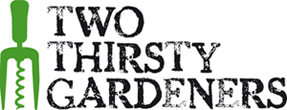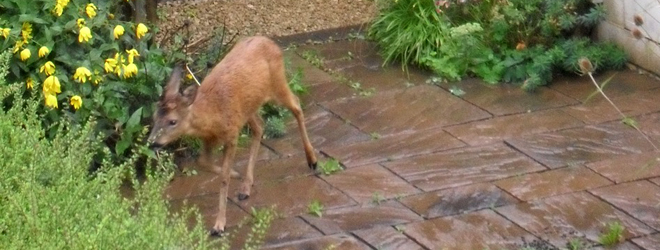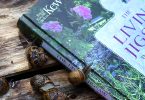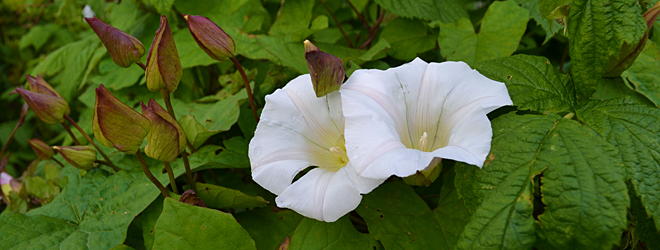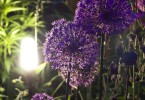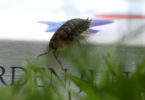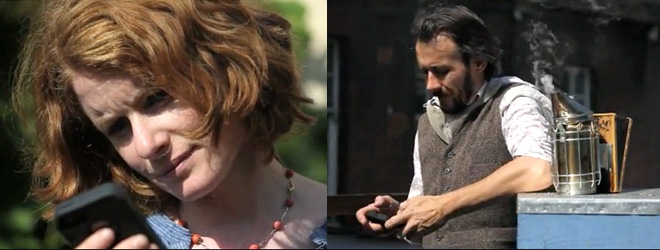Besides creating your own, unique environment for plants to thrive, managing a garden or allotment also allows you to welcome living creatures into your world. Here we reminisce on some of the beasts we’ve homed in the past and provide a few suggestions to what animals could roam on your patch
Wildlife
Although some wild creatures can be a nuisance to the gardener, many more should be encouraged. Not only do they provide visual entertainment, but some of them actually earn their keep – from hedgehogs and thrushes thrashing the life out of slugs and snails, to bees and bugs pollinating fruit and veg, and even the humble worm helping turn waste into wonderful compost.
Over the years we’ve rejoiced at the sight of numerous wild species enjoying our gardens and allotments, most obviously birds. Although neither of us are fully fledged twitchers ,we can both locate our binoculars and bird identification books within seconds, with Rich’s hefty RSPB spotters guide unusually showing signs of stained use on the page marked ‘golden pheasant’. Nick hasn’t matched that rare spot, but he has experienced the spectacle of a sparrow hawk chasing a sparrow through the back door, along the hall and into his kitchen. The hawk was safely liberated immediately while the sparrow exited a full two hours later when she finally came out from her hiding place behind the kettle.
We’ve also had our fair share of four legged animals wander over the human’s turf – Rich is particularly prone to deer attacks on his fruit trees but, despite their destruction, still can’t help admiring their majesty.
Find out more: It’s fairly easy to attract birds to your garden and, depending on where you live, you could enjoy a huge range of species feeding off your land. The RSPB provides a wealth of information to get you started.
Farm animals
Keeping farm animals in the back garden is becoming increasingly popular, as frustrated folk develop a yearning to shake of the trappings of modern life by becoming more self sufficient. Pigs, goats or even alapaca can all be relatively straightforward to keep, providing you have enough space for them to live. You then get the choice of letting them become a part of the family by giving them names and affording them the affection of a more traditional pet. Or you get to treat them with more indifference and eat them when they’re fat enough.
We both grew up looking after livestock. Rich temporarily enjoyed the company of a goat called Daisy before his family ran out of lawn and he was rehomed in a proper field, while Nick helped his folks look after a lamb – rejected by his own mother for being a runt – nurturing him up to full strength so the farmer could eventually trundle him off to the slaughterhouse.
Find out more: There are plenty of blogs describing the experience of keeping livestock. The Accidental Smallholder is one of the most informative.
Fowl
Less daunting than grunting, snuffling pigs or sheep are squawking, flapping fowl. Chickens, ducks and geese can all be reared in a relatively small space and come with the added benefit of providing eggs. So even if you don’t fancy roasting your pet bird, at least you still get some protein in exchange for feeding them.
Nick’s home menagerie included numerous ducks and, briefly, bantam hens. It didn’t take long for the racket made by the bantams to start irritating the neighbours, so when the noise got too much they were despatched to the kitchen (with a couple ending up in the neighbours oven by way of an apology).
Find out more: Francine Raymond is one of the UKs best writers on keeping hens and her excellent blog The Kitchen Garden will fill you in on everything you need to know.
Pets
Cats and dogs love having their own garden to play in. Rich’s cat provides him with endless amusement as she digs up his flower beds, craps between rows of carrots and significantly reduces his chances of spotting more unusual birds. Nick’s greyhound, although many times the size, is far less destructive, but he has virtually dissolved a rosemary bush and half the lawn with his toxic pee.
There are, of course, other pets that can be kept entirely outdoors, usually in their own personal dwelling, that are adored by children for at least a week before they get bored. Rich’s childhood pets included guinea pigs while Nick vaguely remembers a rabbit. The cats and dogs are better.
Find out more: A decent pet shop should be able to guide you through a vast choice of animals suitable for your particular space, providing you with a home, food, dining equipment, insurance, holidays, TV, saunas and any other mod cons a pet should require. Pets At Home is one of the UKs favourites.
Fish (and other aquatic life)
If you want to keep fish, you’ve got two choices. Small species that live indoors in glass bowls, or proper, big fish that need a proper, big pond to thrive in. Rich grew up with a pond in his garden filled with a great many goldfish, although their numbers were significantly reduced when the neighbour’s Old English Sheepdog leapt over the fence and did a Tom Daley in the pond.
But there are more advantages to a garden pond than just keeping fish. They give you a chance to grow a whole new variety of plants and support an entirely new set of life forms for further animal amusement – from frogs and toads to newts, dragonflies and other flying, sliding and swimming things. And you might also welcome more birds and animals looking to feed off that new aquatic life. Just get yourself a hole, some water, and a world of wildlife awaits
Find out more: There are numerous online specialist retailers, such as All Pond Solutions, who will provide everything you need to install and maintain a garden pond.
This is a sponsored post
